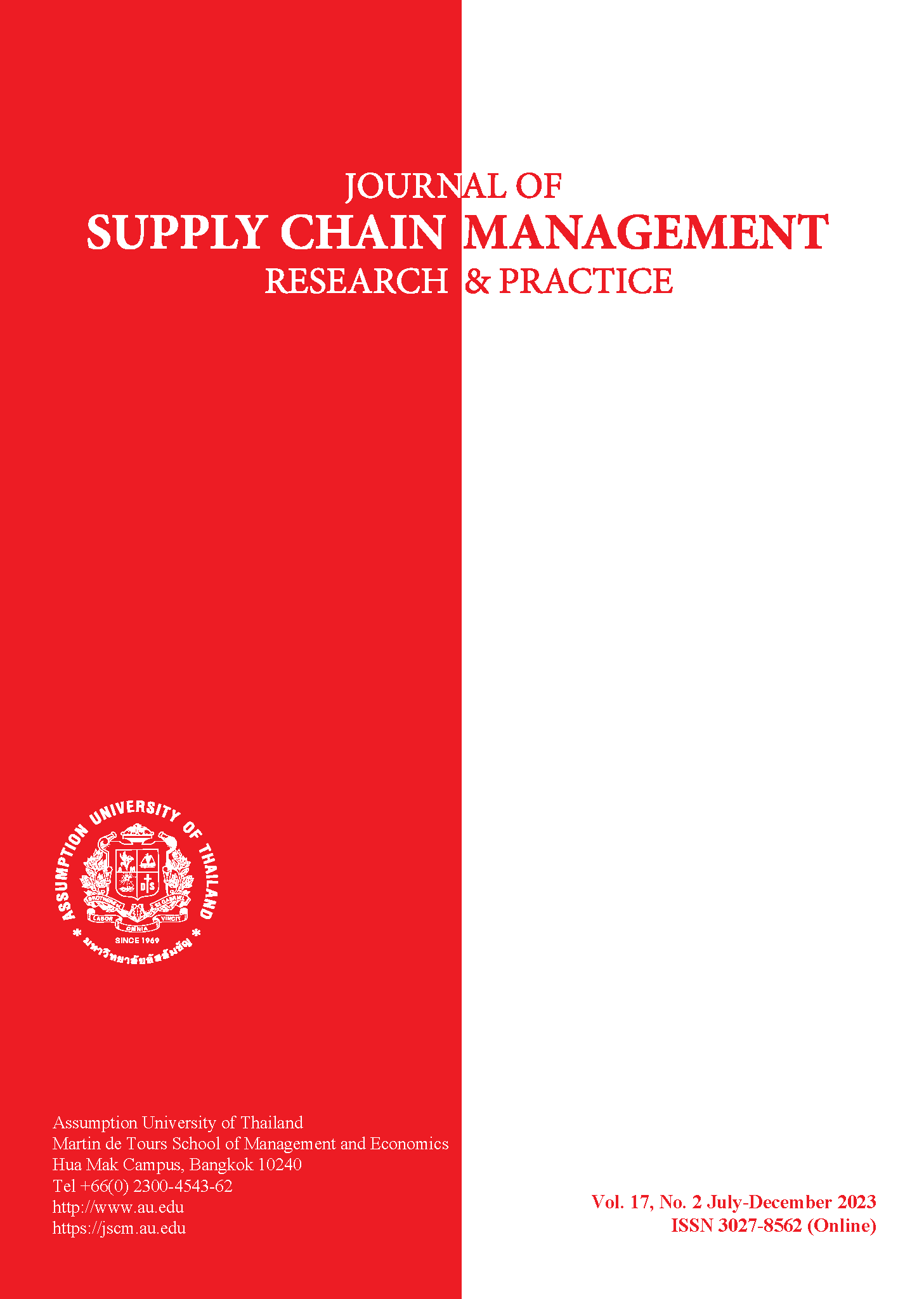EVALUATION OF AIR CARGO LOGISTICS: SUVARNABHUMI AIRPORT BANGKOK
Abstract
Air shipment has become a growing solution for international shipments. It is traditionally used for high-value merchandises such as electronic parts, orchids, tropical fruits. There are many factors that influence a customer’s decision to move cargo by air. These factors include high value, urgency of need or use, product sensitivity, being lightweight but important in the production process (i.e. spare parts).
However, due to lack of visibility, sometimes cargo can disappear or get damaged before reaching the destination. Problems in the cargo logistics system range from damaged cargo, miss-routing, missing cargo, or even missing documents. Performance measurements are required to analyze the effectiveness and efficiency of the cargo logistics system. Performance measures can be distinguished by many aspects, such as Relational Performance, Operational Performance and Cost Performance (Stank et al., 2003). In the case of the new Suvarnabhumi Airport, the operational performance of air cargo is difficult to control by the air cargo service providers. This is because the operations at the cargo terminal are centrally operated by Thai Airways International (Thai Cargo Terminal) and Bangkok Flight Service (BFS Terminal).
The purpose of this study is to identify and analyze the hidden factors and elements that affect the performance of air cargo service providers. This study reviews the flow of cargo from booking and receiving to the end. It also examines the operation process starting from the Cargo Terminal, to customs formality and inspection, unloading, to being put on standby before exporting. The flow of cargo and operation process will be described and examined after being investigated and analyzed at the International Cargo Terminal. A Root Cause Analysis (RCA) will be applied to indentify the hidden factors and elements which affect the performance of the operation process.
The result of this analysis shows the sensitive points in the cargo system. This analysis and resulting suggestion will increase the air cargo service providers’ ability to manage their performance. This study will serve as a basis for the improvement of performance of airport cargo logistics systems.


